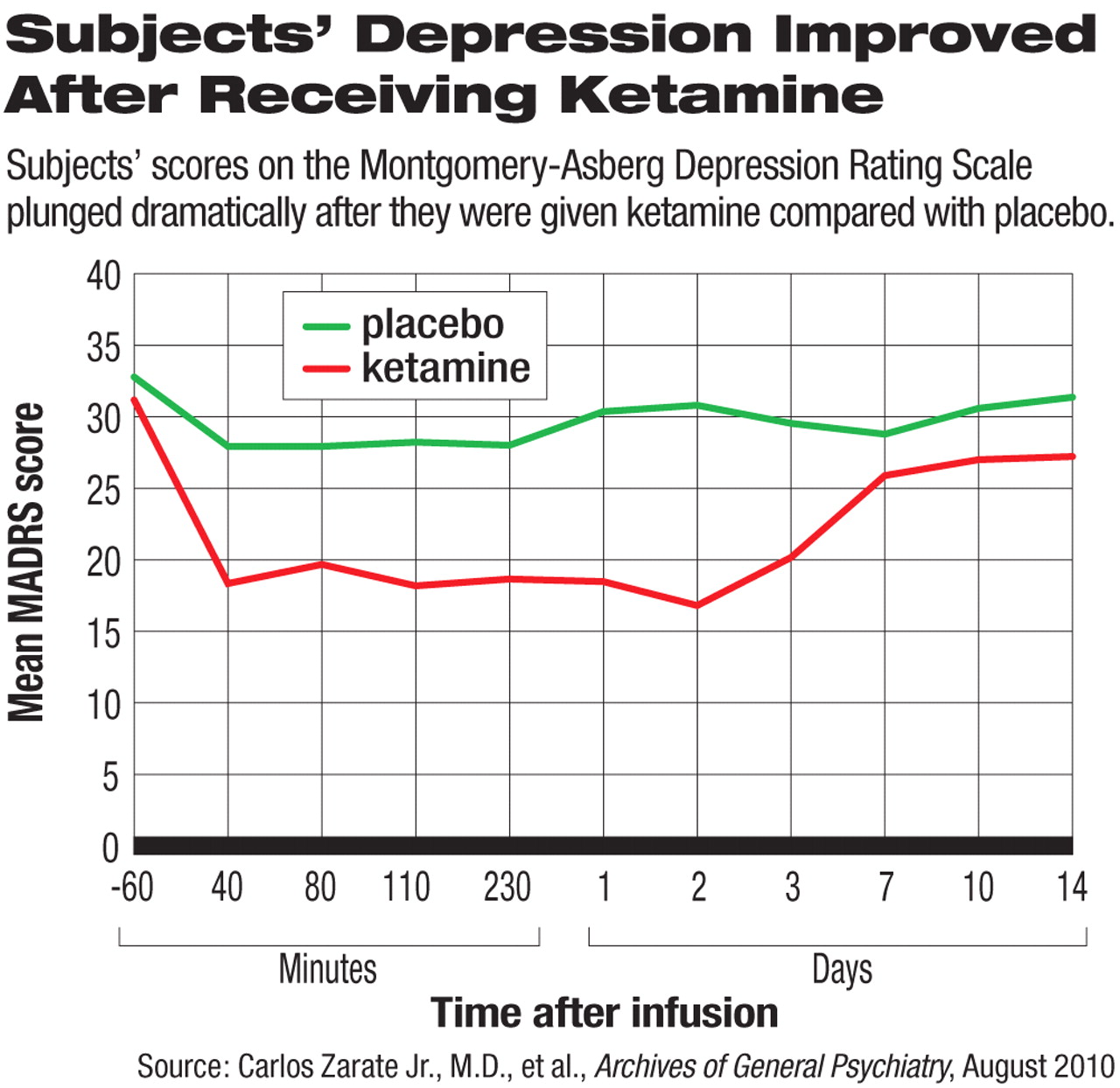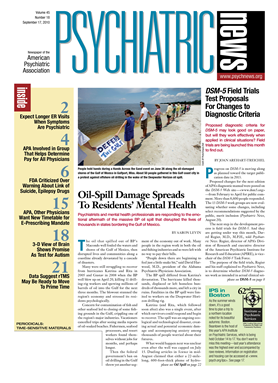In a small proof-of-concept study, scientists have demonstrated that it is possible to counter depression within an hour in subjects with treatment-resistant bipolar depression. This dramatic change was brought about by a single intravenous infusion of ketamine, which is an NMDA (glutamate) receptor antagonist.
The lead investigator was Carlos Zarate Jr., M.D., chief of the Experimental Therapeutics and Pathophysiology Branch at the National Institute of Mental Health (NIMH). Study results were published in the August Archives of General Psychiatry.
A few years ago, Zarate and his colleagues conducted a small randomized, placebo-controlled, crossover trial to see whether an injection of ketamine could produce a rapid antidepressant effect in 18 subjects with treatment-resistant major depression. They found that it could, according to a report in the August 2006 Archives of General Psychiatry. Subjects experienced significantly less depression while on ketamine than while on a placebo. The improvement started two hours after ketamine injection and lasted up to a week.
The objective of this new study was to determine if ketamine could produce a rapid antidepressant response in 18 subjects with treatment-resistant bipolar depression.
Subjects who were maintained at therapeutic levels of lithium or valproate received an intravenous infusion of either ketamine hydrochloride (0.5 mg/kg) or placebo on two test days two weeks apart. The ketamine dose was based on the researchers' previous study of subjects with treatment-resistant major depression, as well as several other studies. The Montgomery-Asberg Depression Rating Scale (MADRS) was used to rate subjects at baseline and at 40, 80, 110, and 230 minutes and on days 1, 2, 3, 7, 10, and 14 post-infusion.
Within 40 minutes after receiving a placebo, subjects' depressive symptoms lessened a little. But within 40 minutes after receiving ketamine, their depressive symptoms lessened significantly more. This improvement remained significant through day 3. The drug-difference effect size was largest on day 2.
Seventy-one percent of subjects responded to ketamine, and 6 percent responded to placebo at some point during the trial. Ketamine was generally well tolerated; the most common adverse effect was the appearance of dissociative symptoms, though only at the 40-minute point on the first day. Dissociation is a common side effect of ketamine.
“These findings are particularly noteworthy because a substantial proportion of study participants had been prescribed complex polypharmacy regimens in the past, with substantial treatment failures,” the researchers said in their report. “The mean number of past antidepressant trials was seven, and more than 55 percent of participants had failed to respond to electroconvulsive therapy. The toll of this protracted and refractory illness on the subjects was evident in that two-thirds of participants were on psychiatric disability, and nearly all were unemployed.”
Zarate said, however, that at this point their findings do not have clinical implications. “The optimal dose of ketamine for treatment-resistant depression has not yet been established,” he said. “It is possible that lower doses of ketamine than what we used in our study would avoid the side effects.” He added that the results, “while encouraging, warrant further research in larger controlled studies to determine ketamine's efficacy and safety profile in this population.”
Meanwhile, Zarate and his team are conducting clinical trials on subjects with major depressive disorder to see whether subunits of NMDA antagonists other than ketamine can bring about a rapid antidepressant response without the dissociative side effects that ketamine can produce.
The goal of such research is to “develop treatments that result in an antidepressant response in hours instead of weeks,” he said. “Such efforts, if successful, would have a significant and immediate impact on the quality of life of our patients and their families.”
“Carlos Zarate continues to make landmark contributions to the field of mood disorders in general and bipolar disorder in particular,” Joseph Calabrese, M.D., director of the Mood Disorders Program at Case Western Reserve University, told Psychiatric News. “His work has shown that increased glutamatergic release results in an almost immediate acute antidepressant response in patients who are in the depressed phase of bipolar I and II disorder. It is the depressed phase where patients live their symptomatic lives, suffer the most, and in all too many instances, end their life by completing a suicide attempt.”
Zarate's findings also have important implications for other psychiatric researchers, Calabrese suggested. For example, pharmaceutical company scientists could now try to develop treatments for bipolar depression that have an almost immediate effect.
The research was funded by the Intramural Research Program at NIMH and by NARSAD.

